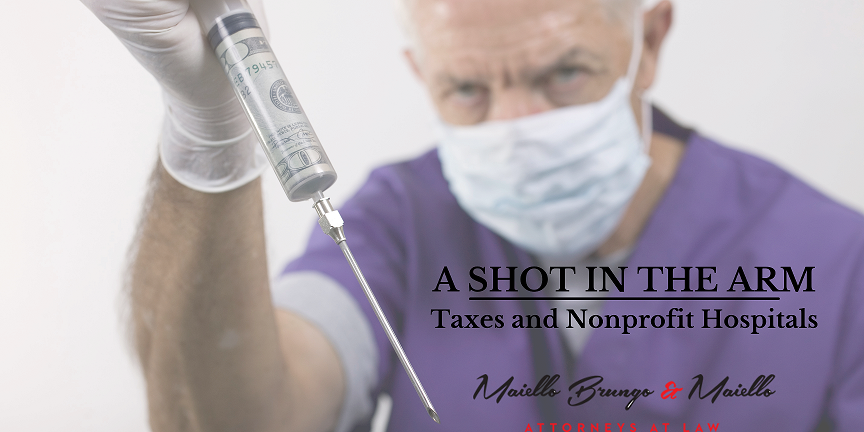A recent decision by the Court of Common Pleas in Chester County puts into question the exempt status of nonprofit hospitals in Pennsylvania when it rejected healthcare provider Tower Health’s appeals for exemption for three of its hospitals.
Pennsylvania Nonprofit Hospital Tax-Exempt Status
Typically, and as is the case with the majority of hospitals in Pennsylvania, most hospitals organize as nonprofit corporations to take advantage of the tax benefits provided by the Internal Revenue Service (IRS) and the ability to commit more revenue to the goal of providing top of the line healthcare. Helping these hospitals reach and sustain their goals, the legislature and the courts have long recognized the nonprofit hospitals as “charities” and based on statutory law, deemed the same to be exempt from payment of real estate taxes. More than 75% of all hospitals in Pennsylvania are organized as a non-profit, which is higher than the 50% across the U.S.
Court Decision on Nonprofit Hospitals in Pennsylvania
Judge Sommer of the Chester County Court of Common Pleas recently broke tradition by finding that despite being nonprofit hospitals, they did not qualify as “charities.” In support of its decision, the Court found the hospitals were not providing uncompensated healthcare but rather merely undercompensated healthcare. The hospitals based their costs on what they expected to receive from Medicare and private insurers, and since they were actually paid less, believed they were providing uncompensated services. However, the court deemed them as undercompensated.
Additionally, the Court took the position that the overall structure of the healthcare provider Tower Health was problematic and resulted in misleading losses. Tower Health, which for lack of a better term is the parent company, charged the three hospitals $43 million in management fees in a single year which reflected as losses on the hospital books and the annual executive compensation was high (in excess of IRS guidelines). The Court noted that if the hospitals did not have to “pay exorbitant amounts to Tower Health for management fees and interest, they would not have been ‘failing businesses’.” Judge Sommer determined that the hospitals’ operations and compensation policies were more aligned with for-profit real property taxpaying entities and thus found they did not qualify for exempt status.
Will the PA Supreme Court Hear This Case?
The decisions have already been appealed to the Commonwealth Court. This is a welcome move, especially since the Montgomery County Court of Common Pleas issued a decision at the same time granting exempt status to a Tower Health hospital. Both cases together are obviously difficult to reconcile thereby requiring the Commonwealth Court’s and likely the Pennsylvania Supreme Court’s input.
Will I Need a Pennsylvania Tax Assessment Lawyer?
Taxing bodies will want to pay close attention to the final outcome on this challenge to the nonprofit/tax-exempt status of healthcare institutions. Given the assessed values of hospital and healthcare properties, the possibility that these parcels will no longer be exempt could have significant long-term financial consequences and increased tax revenue.
Taxing bodies should be prepared to review those properties in their jurisdictions that may qualify. Contact MBM Law for professional and experienced tax assessment attorney assistance in Pennsylvania.


